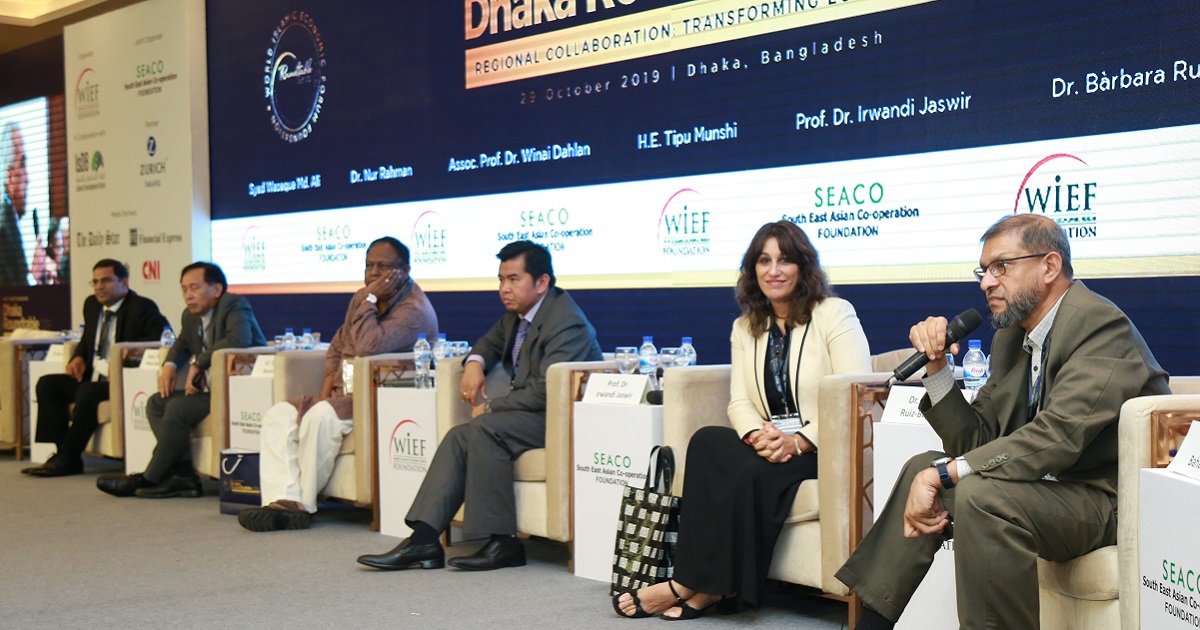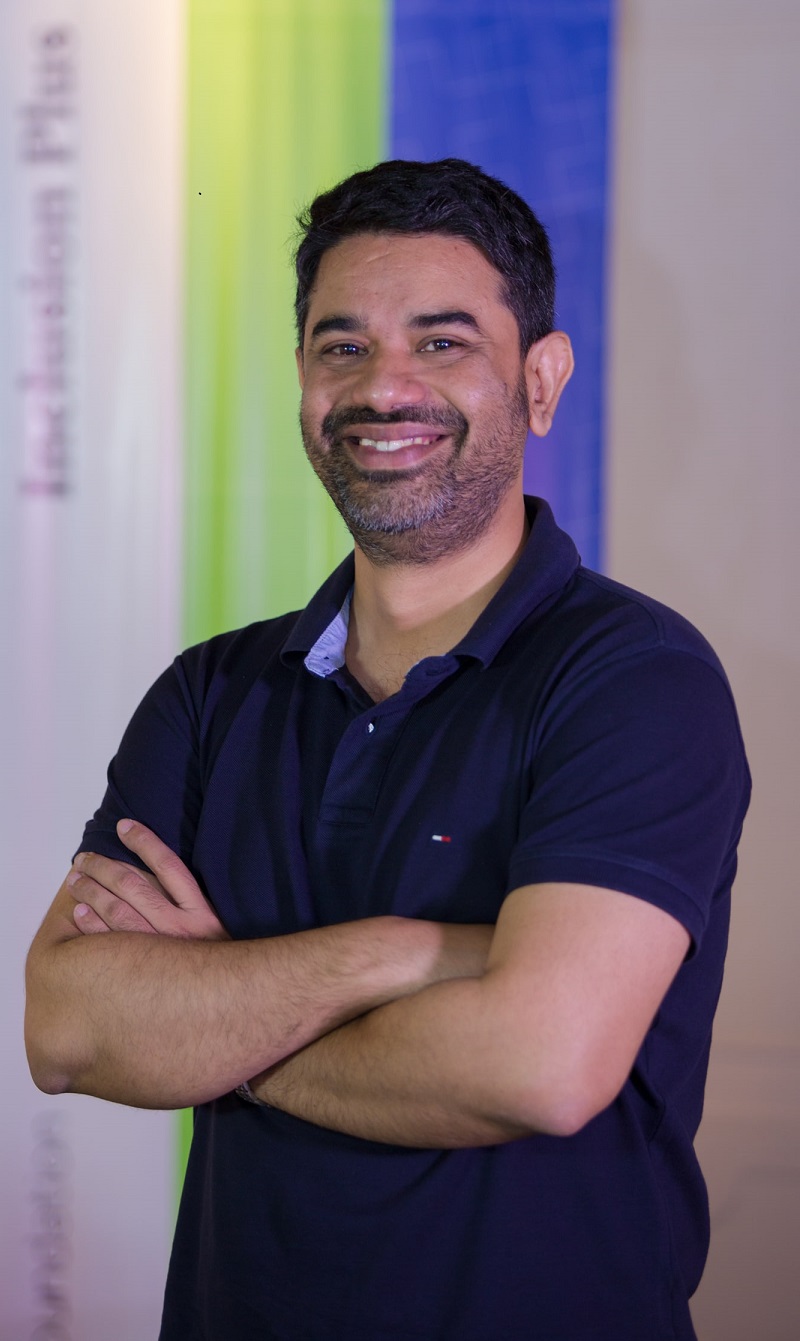Halal in the Technological Age
The concept of halal goods and services have steadily gained momentum globally. This session, the third session at the WIEF-SEACO Foundation Roundtable 2019 in Dhaka, addresses this development alongside the global trend of technological development.
The Honourable Tipu Munshi, Minister of Commerce for Bangladesh in his capacity as chief guest at the session during WIEF-SEACO Foundation Roundtable 2019 engages a knowledgeable panel regarding the application of halal in an age defined by technological development and disruption. The discussion shares more insight into the halal lifestyle market which is expansive in its inclusion of halal food, halal modest fashion and halal tourism. Panellists shed light on how technology and innovation impacts halal markets by offering both challenges and opportunities in this space. Expansion and improvement are needed to help serve business needs and support integrated halal lifestyles.
In a previous session during the Roundtable, experts discuss the growth of Islamic finance and during the session on the halal sector, it is similar. The Honourable Tipu Munshi opens the discussion by acknowledging the global Muslim population and how business as well as service providers are responding to this population growth by considering Muslims as active consumers needing specific products and service delivery. ‘According to the state of the Global Islamic Economy Report 2018 and 2019 by Thomson Reuters, in 2017, Muslims across the globe spent USD2.1 trillion in the lifestyle sector; USD2.4 trillion in Islamic finance sector; USD1.3 trillion in the food and beverage segment; USD270 billion in clothing and apparel; USD87 billion in pharmaceuticals; and USD61 billion in cosmetics,’ he reports.
Furthermore, beyond the application of shariah rulings, non-Muslim consumers have begun to see halal certification as a symbol of hygiene and quality. A market opportunity exists here. ‘The three trillion-valued Muslim market represents only 3.4 per cent of the total global economy and Muslims will represent 25 per cent of the population which means we still have a lot to grow, if we want to. Not only consume, but also to produce halal and be engaged in halal models of business,’ says a session speaker Dr Bàrbara Ruiz-Bejarano who is the director of International Relations from The Halal Institute in Spain.
Dr Bàrbara offers parameters for reflection given what she has identified as five primary aspects of daily life that have been, and continue to be, affected by technology. The living experience of both Muslims and non-Muslims alike is affected by technological change in mobility, productivity, connectivity, creativity and wellbeing. These cover the aspects of life that are applicable to us all and demonstrate the extent of technological intervention. These areas further assist in a consideration of where halal principles can be applied and the potential of the halal industry exists.
The expanse that these areas of life cover and the proposed profitability alludes to the involvement of Muslims versus non-Muslim countries’ involvement in the halal industry. Session speaker, Professor Dr Irwandi Jaswir who is a King Faisal International Prize 2018 Laureate and advisor at the Halal Lifestyle Center in Indonesia, questions how much of this profit benefits Muslims. ‘We realise that in the meat and poultry industry, non-Muslim countries are the leading shareholders. Australia and New Zealand, for example, are major producers of halal meat. Poultry, Brazil is leading. In Southeast Asia, the country [that] has benefitted a lot from the halal industry is not Malaysia, not Indonesia, but Thailand with only a five per cent Muslim population.’
In order to reap the benefits of the industry, according to Dr Irwandi, Muslim countries need to take more ownership of the entire halal ecosystem including production and manufacture. Technology can facilitate this. ‘We do not have much technology that can facilitate our ideas, our creativity and manufacturing processes, for us to go into the halal industry. This is the potential where we can collaborate together, we can develop something that we can share together, so that the halal industry can be of benefit to all of us. So, it is not possible for us to develop the halal industry without developing the halal laboratory, halal R&D [and more], where the non-Muslim countries like Japan, Korea are very serious about this.’.
Session speaker, Associate Professor Dr Winai Dahlan, who is the founding director of The Halal Science Center at Chulalongkorn University in Thailand, shares his country’s experience. He says that, not only non-Muslims consumers are in the halal industry, but, given that they are a majority in the broader market, they should be drawn to the halal industry to promote its profitability. Science and technology can be used to do this, especially in light of the assurance of safety. Dr Dahlan refers to the algorithmic touch of halal through the addition of artificial intelligence and blockchain technology to reduce the cost of halal accreditation and in the production of a product with higher competitive capability with lower expenses.
Dr Jaswir’s halal ecosystem is shared by both session speakers, Dr Dahlan and Dr Nur Rahman who is Group CEO of Ghanim International Corporation Sdn Bhd in Brunei. Dr Rahman calls for forthright action to capitalise on the growing nature of the market. He recalls, ‘Koreans, a few years ago, were given a 20 per cent incentive. The government decided to give a 20 per cent incentive for producing halal products. [This is] in a non-Muslim country. Hence, we need to act. Obviously, in halal industries, there are challenges like traceability issues, cross contamination issues, and we need to learn how we can use technology today to mitigate these challenges in two ways – for managing the halal business and in quality testing. So, if the product is non-halal because of cross contamination with alcohol or cross contamination with a pork product, we can check by ELISA test, by DNA technology or by other technology HPLC.’
During the Q&A segment, Dr Ruiz-Bejarano concedes Dr Jaswir’s previously published point that certification is an issue and a trade barrier for a lot of countries and needs to be harmonised. We should follow one united certification and not be impeded by those that consider halal certification to be a business. This is currently in practice in Thailand where Dr Dahlan tells of the Islamic Organisation Administration Act of 1997, ‘The authority of the halal accreditation in the Act is to be performed by the Central Islamic Council of Thailand. We have 40 Islamic organisations but they are under the same umbrella of the Central Islamic Council Thailand.’ Thailand further benefits from a governmental vision that saw the establishment of the Halal Science Centre in 2003 which offers support to furthering the halal industry.
Last Words
Halal has emerged as a global movement that covers a multitude of industries including food and beverage, Islamic finance, pharmaceutical, logistics, tourism, modest fashion, media and entertainment, and the creative arts. Bangladesh has been noted by Goldman Sachs as among 11 nations with high economic potential. So too, the halal industry demonstrates high potential, and the two can be aligned in the region. ‘In order to flourish the halal ecosystem, the issues of capacity building, knowledge and technological aspect, exchange of expertise, human resource development, private sector and stakeholder’s integration, strong institutional networking should be taken care of,’ concludes The Honourable Tipu Munshi.
For details on the Roundtable programme and bio of each speaker, visit event webpage. To read summaries of the Roundtable sessions, visit: Rethinking Infrastructure Development, Islamic Finance and Opening & Session 4.





